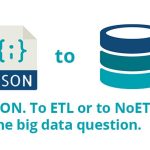Python is touted as one of the fastest-growing major programming languages in the world at the moment. It is quickly becoming the most visited tag on Stack Overflow as well. One of the major reasons of its exponential growth is that Python is an incredibly versatile language. It can be used to develop websites, machine learning algorithms, as well as autonomous drones. A large … [Read more...] about 5 Easy Breezy Ways to Master Python!
Technical
Learn all about technical data and programming and why it's crucial for businesses. Get knowledge on how to collect and use this information to improve your products and services.
How-to Guide to Handling Missing Data in AI/ML Datasets
Artificial Intelligence and Machine Learning are the noble pursuits that depend largely on the data they are fed. With this data, systems figure out the future path and learn to handle complex scenarios. All of the applications of Machine Learning and Artificial Intelligence makes sense only when the supplied data is complete and rich. But, in the real world, the data is not … [Read more...] about How-to Guide to Handling Missing Data in AI/ML Datasets
JSON: To ETL or to NoETL? The Big Data Question
NoETL. The little brother of NoSQL You have probably come across the term NoSQL. It was coined a few years back to describe a class of database systems that can scale across a large number of nodes for distributed (and sometimes global processing) of transactions (OLTP). Very early technologies were DynamoDB and Cassandra. These technologies trade in scalability for consistency … [Read more...] about JSON: To ETL or to NoETL? The Big Data Question
How AWS, Azure, and Google Cloud are Leveraging Machine Learning and AI
Machine learning, deep learning, and AI are all hot topics in the IT world, particularly now that computer science has advanced to the point that we are only just realising their full potential. Cloud-based service providers such as AWS, Azure, and Google now offer solutions leveraging these technologies. In this article, you'll find out what exactly AI, machine learning, and … [Read more...] about How AWS, Azure, and Google Cloud are Leveraging Machine Learning and AI
Keep Calm And Code On: Productivity Tools for Developers
Productivity turns into a vague concept when speaking of jobs in the technology environment. Programming is one of the areas where productivity is really hard to measure and manage: a developer's productivity cannot be measured in trivial figures like lines of code. There are various opinions about how to handle it and many management approaches, but in any case, adopting … [Read more...] about Keep Calm And Code On: Productivity Tools for Developers
What is technical data?
Technical data can be something as simple as a list of ingredients for a recipe or a more complex set of instructions for assembling a piece of furniture. Technical data can also be mathematical formulas or set points for calibration. No matter what form it takes, technical data is always designed to provide information that will help people to understand and use a particular product or service.
In some cases, technical data may be subject to special regulations, such as those governing the handling of confidential personal information. However, in general, technical data is considered to be publicly available information. Want to learn more about technical data? Datafloq has courses available. Contact us to get started.
What is the purpose of technical data?
Technical data is often used to create engineering drawings or specifications, which are then used to manufacture the product. Technical data can also be used to troubleshoot problems with a product or system.
For example, if a component is not working properly, technicians may refer to the technical data to determine the root cause of the problem. Technical data is an essential part of the product development process and can be very useful for businesses and consumers.
What are examples of technical data?
Technical data refers to the specifications of a product or system, including its performance, dimensions, weight, etc. It is often used in the context of engineering or manufacturing. For example, engineers will consider the vehicle’s weight, aerodynamics, and engine size when designing a new car.
Technical data can also be used to compare different products or systems. For example, if you are trying to decide between two different types of printers, you might look at their printing speed, paper capacity, and resolution.
What is technical data analysis?
Technical data analysis aims to help make better decisions by understanding the data better. Technical data analysis can be used for different purposes, such as predicting future events, identifying trends, or spotting outliers. Many different statistical methods can be used for technical data analysis, and the choice of method will depend on the type of data and the question you are trying to answer.
What is a high-tech startup?
A high-tech startup is a company that uses technology to create new products or services. These startups are usually founded by entrepreneurs with innovative ideas for a new business. Many high-tech startups are based around developing new software or hardware, but some may also focus on creating new medical devices or developing new clean energy technologies.
Whatever their focus, all high-tech startups share a common goal: to bring their innovative ideas to market and create value for their customers.
What is a high-tech business?
A high-tech business is an organization that develops or uses advanced technological processes and products in its operations. Many high-tech businesses are involved in research, development, engineering, and manufacturing. They often work with cutting-edge technologies, such as artificial intelligence, biotechnology, and nanotechnology.
These businesses typically require a highly skilled workforce and substantial investment in research and development. Due to the risky nature of developing new technologies, many high-tech businesses are venture-backed startups. However, some large companies, such as Google and Apple, are also considered high-tech businesses.







